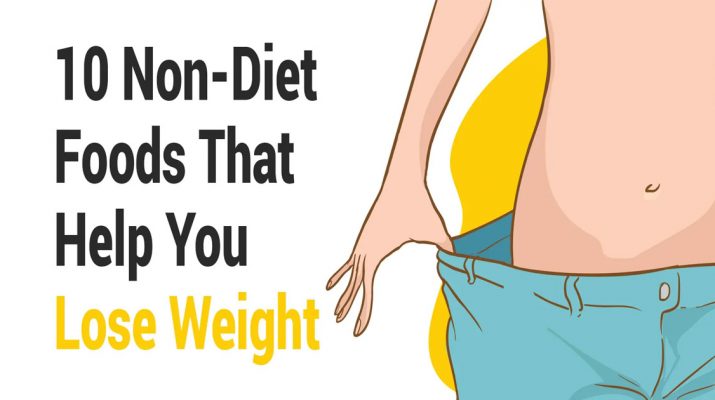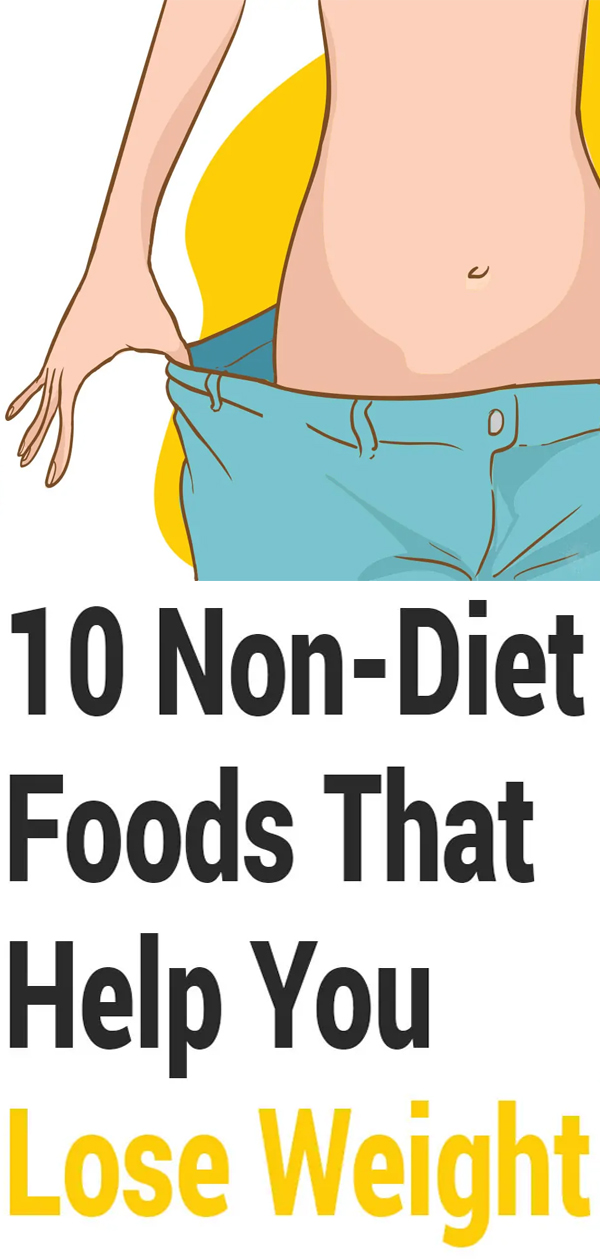In this article, we’re going to discuss ten foods that aren’t always discussed in the context of a diet. Nevertheless, these ten non-diet foods can help you lose weight fast. Here they are, in no particular order:
10 “Non-Diet” Foods That Help You Lose Weight
Yogurt
In a study published in the New England Journal of Medicine, researchers divided 120,877 healthy, non-obese American men and women into three cohorts with follow-up periods of 20 years each. The ultimate objective of the study was to record how common food items impacted weight gain (or loss.)
The research team found that the participants gained, on average, 3.3 pounds per four-year period. The food item that correlated the highest with weight gain? Potato chips, with a four-year weight change (gain) of 1.69 pounds. Weight loss? Yogurt, with a four-year weight change average of -0.82 pounds. Yogurt even beat out fruits, which came in at -0.49 pounds.
Berries
In a 2016 cohort study published by the British Medical Journal, a research team from Harvard University examined the effect of flavonoid subclasses on weight change over time. A total of 124,086 men and women took part in the study.
The team discovered that the flavonoid subclass anthocyanins caused the most amount of weight loss of all six subclasses included in the study. Anthocyanin consumption increased weight loss at a rate of 27 percent higher than the next class of flavonoids (flavonoid polymers.)
High concentrations of anthocyanins are commonly found in many berries, including blackberries, blueberries, and cranberries. They can also be found in cherries, eggplant, grape juice, plums, prunes, raisins, red apples, red beans, red beets, red cabbage, red or purple grapes, red onions, red pears, red wine, and strawberries.
Cauliflower
Steamed cauliflower tastes really good with the right dish. It also turns out that cauliflower is a terrific food for weight loss.
In a 133,468-person cohort study published in the journal Public Library of Science (PLOS), researchers examined the connection between certain fruits and vegetables and total weight change after four years. After ruling out the other aspects of diet, exercise, and lifestyle factors, researchers found that cauliflower was among the fruits and vegetables most strongly correlated with weight loss.
Not all vegetables like cauliflower were linked to weight loss, however. A higher intake of “starchy vegetables” like corn, peas, and potatoes was correlated with weight gain.
Chickpeas
An annual Asian plant of the pea family, protein- and fiber-rich chickpeas can be a weight loss plan’s savior. Multiple studies find that eating chickpeas lowers food consumption and increases satiation (feelings of fullness).
In a 21-study analysis published in The American Journal of Clinical Nutrition, researchers find that “non-oil seeds [dietary pulses] of legumes such as beans, lentils, chickpeas, and dry peas led to a “significant weight reduction” in diets that include dietary pulses. Additional findings point to chickpeas potentially reducing body fat percentage.
Chickpeas are arguably the lentil most conducive to weight loss due to their unique combination of high protein and fiber. Chickpeas also have a lower glycemic index (how much food increases blood sugar levels) than black beans, lentils, navy beans, and soybeans.
Grapefruit
First things first: the so-called “Grapefruit Diet” – an extreme, low-carb diet requiring a side of grapefruit at each meal – is not a good idea. So why mention it? Because the recent fad diet craze has gotten out of control to the point where any idiot with access to a computer and enough literacy to read nutrition information can come up with a fad diet. Nevermind that such diets often starve the body of the minimum number of calories and vital nutrients. Bottom line: Fad diets aren’t a good idea, and that includes this one.
As far as grapefruit is concerned, it is a fruit that may help with weight loss. In a 2006 study published in the Journal of Medicinal Food, obese patients given half of a fresh grapefruit before each meal for 12 weeks lost, on average, 1.6 kilograms (3.52 pounds), while the placebo group lost just 0.3 kilograms (0.66 pounds).
Perhaps you don’t fancy yourself a grapefruit person. Well, individuals who took grapefruit capsules – a more tolerable option for some – with seven ounces of apple juice per meal still lost 1.1 kilograms (2.42 pounds)!
Oats
Oats, such as those found in oatmeal, can be a great addition to a dieter’s cupboard. Not only are oats low-calorie, but they’re also packed with healthy fiber and protein to keep you feeling full.
One cup of oatmeal, for example, contains just 150 calories while packing six grams of protein and four grams of fiber. Besides keeping those hunger pangs at bay, fiber is also critical to the maintenance of a healthy gastrointestinal (GI) tract. The soluble fiber in protein may also decrease LDL (“bad cholesterol”) levels by up to 15 percent.
It’s important to note the difference between whole oats, instant oats, and the “insta-oats” trying to pass as a healthy breakfast option. Concerning the latter, Quaker produces multiple varieties of instant oatmeal that are saturated with sugar and stripped of nutrition.
Tofu/Soy
Who else was wondering how tofu was made? Turns out that the stuff is actually soybeans that are submerged in water, cooked, and mashed into a liquid form. Using a thickening substance called a coagulant, the liquid soybean expands into tofu.
Anyways, if the research is right, tofu (and soybeans in general) may just be one of – if not the – best foods for weight loss. In the above-mentioned study published in PLOS, individuals who ate tofu recorded the highest number of pounds lost. Tofu compared against several other fruits and vegetables – and none of the others even came close.
What could tofu’s awesome weight-loss powers? Probably its high protein, low carbohydrate, low salt, and low-calorie content. A one-half cup of firm tofu has just 63 calories, 1.3 grams (g) of non-fiber carbohydrates, 18 milligrams (mg) of sodium, and a whopping seven grams of protein!
Water
Okay, so water isn’t a food – it’s just that important. But, for something so important, we wouldn’t think that so many would neglect the H2O. Here’s the bottom line: if you’re trying to lose weight, you must – absolutely must – drink water.
Why is water so critical to weight loss? For numerous reasons: it boosts metabolism, keeps you feeling full, eliminates waste, substitutes for caloric beverages, and helps keep the body active – among other things.
In a study published in the journal Annals of Family Medicine, researchers used a nationally representative sample of 9,528 people to evaluate the relationship between water intake, body mass index (BMI), and rates of obesity. Per the academicians: “We found a significant [writer’s emphasis] association between elevated BMI and (obesity)…”
Walnuts
One of the biggest nutritional myths ever concocted is that dietary fat is bad for health. Not true. In fact, the right kind of fat is great for keeping you full and your body humming along. Walnuts – along with almonds, cashews, and pecans – are an excellent example of this fact.
In a 2016 study published in The Journal of the American Heart Association, researchers from the University of California at San Diego found that women who ate a “walnut-rich, higher fat” diet tested for higher “healthy” cholesterol (HDL) levels and lower body fat than the other two diet groups.
Besides promoting weight loss, studies show walnuts may also boost cognition – a class of cognitive abilities that includes attention, decision-making, learning, problem-solving, reasoning, and verbal abilities. Moreover, nuts may counteract age-related cognitive decline. According to research, nut types best for cognition are walnuts, along with almonds and hazelnuts.
Wild Rice
Most white rice lovers face an internal conflict sooner or later. The starchy rice, often packaged with delicious Chinese food (making things harder!), has a high glycemic index. It is also digested very quickly. Thus, the body uses it in a way that’s similar to refined sugar. In other words, it can accelerate the storage of fat and, you guessed it, accelerate weight gain.
Wild rice, on the other hand, causes no such problems. Whole grain with a very low glycemic index, wild rice is also packed with appetite-suppressing fiber.
In a 2008 study published in The American Journal of Clinical Nutrition, researchers found a link between the incorporation of whole grains into a low-calorie diet and faster weight loss. Moreover, the research team concludes that wild rice also lowers the risk of cardiovascular disease by improving the risk factors associated with the condition.


